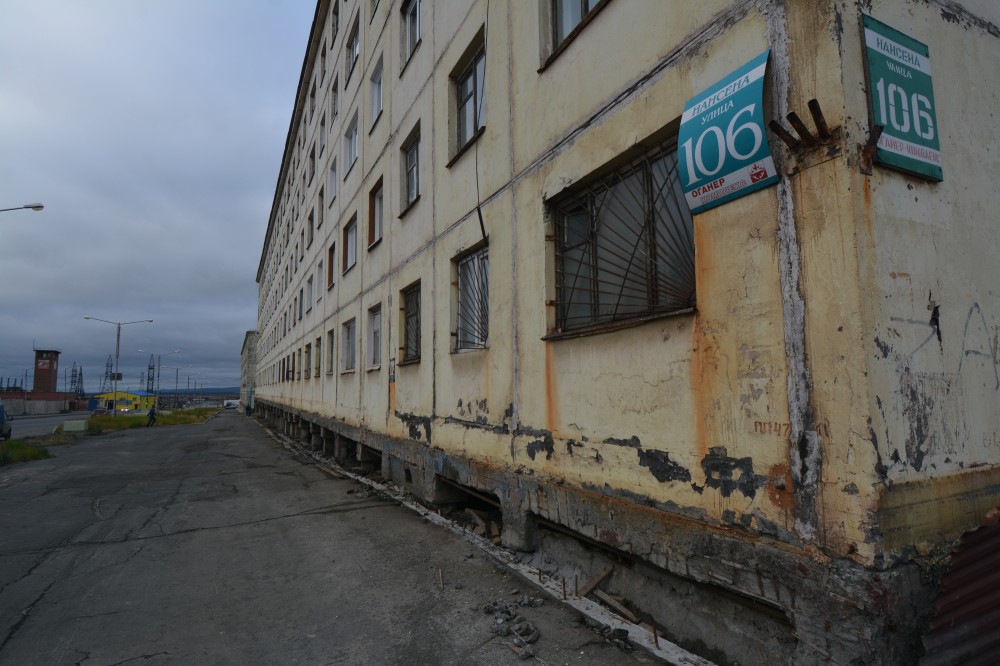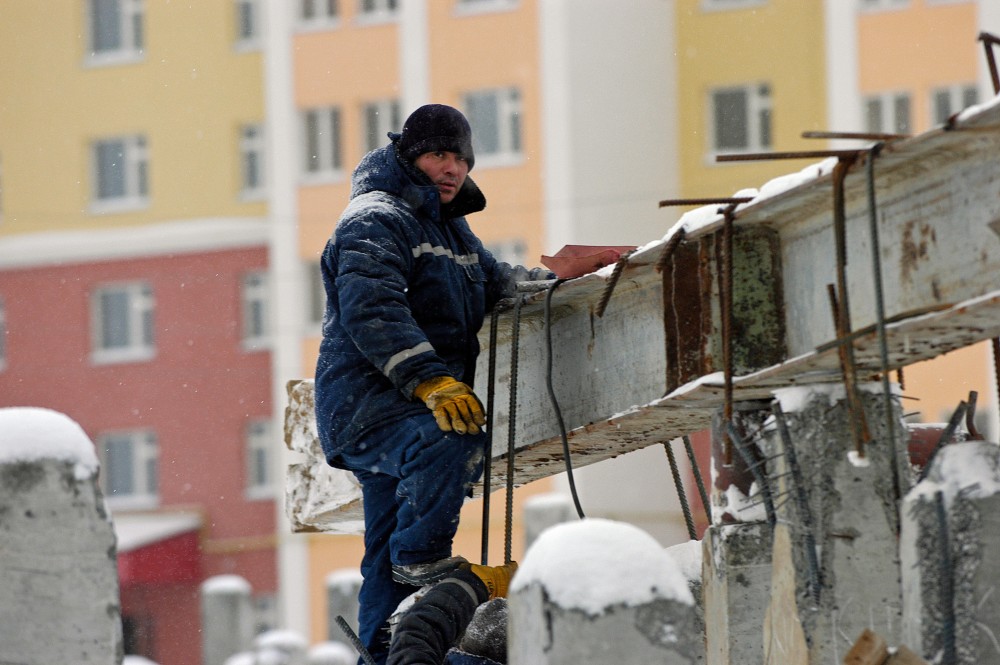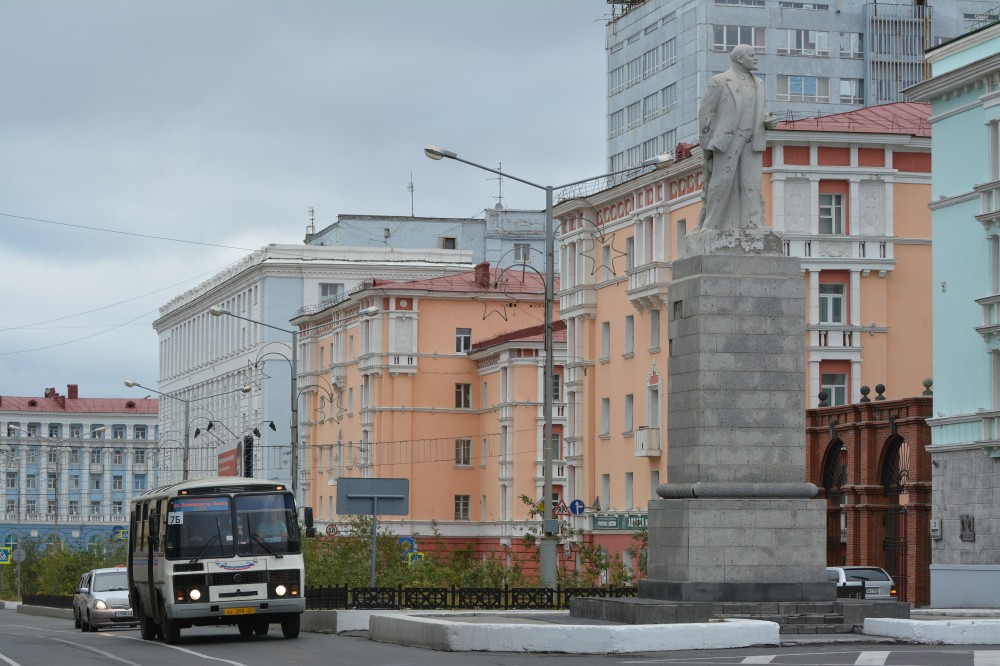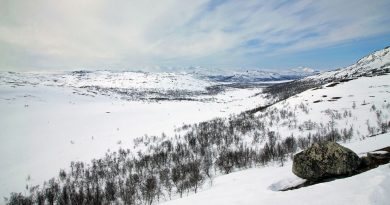City in Arctic Russia cooling ground to preserve buildings on thawing permafrost

Rising Arctic temperatures are causing permafrost to thaw, putting the world’s largest city built on frozen ground in deep trouble.
Rising Arctic temperatures are causing permafrost to thaw, putting the world’s largest city built on frozen ground in deep trouble. Norilsk, the industrial city with 170,000 inhabitants on Russia’s Taymyr Peninsula is partly built on rock massif and partly on permafrost soil.
With shocking fast rise in temperatures inside the Arctic Circle, the thaw will have devastating impact on those buildings built on the soil.
The Barents Observer has previously reported about a study predicting that urban infrastructure across the Russian Arctic could collapse within the next few decades.
In Norilsk, such dramatic impact on apartment blocks is already visible. Like on the Nansen Street where the foundations to the 5-floor apartment block 106 has severe cracks and the pathway besides is really bumpy.

Permafrost is the layer of frozen rock or soil that you find on the in the circumpolar north, including most parts of Siberia. It is the upper part of this soil that now starts to thaw.
Regional authorities this week inspected the buildings in Norilsk and looked at needs for reconstruction, the official portal of the Krasnoyarsk Krai informs.
News agency TASS reports that thermal stabilisation of soils under 10 apartment buildings in Norilsk, whose foundations are under threat due to thawing permafrost, will be carried out in 2021-2024. 650 million rubles (€7,9 million) will be invested in the thermal stabilisation program.
In 2019 and 2020, soil cooling systems were installed along the contour of two houses aimed to freeze the foundations in the ground. The system consists of a network of pipes through which the refrigerant circulates.
Big trouble
Russia’s Ministry of Emergency Situations (EMERCOM) issued a warning in 2016 claiming by the year 2050, the extension of the permafrost in Russia might be reduced by 25% and be the end of the century – by up to 56%.
“This will imply growing risk for a breakdown of buildings, transport infrastructure and pipelines”, Acting Head of the Ministry’s Center of Emergency Monitoring and Prognosis, Konstantin Moskin said.

Norilsk is not the only urban area that faces dramatic impacts on infrastructure and buildings caused by permafrost thaw. Longyearbyen, on Norway’s Svalbard archipelago, sees houses sagging and the unstable ground forces people to move. About 250 houses in the centre will be torn down and new buildings are erected on far stronger metal fundaments placed deeper into the ground.
Similar challenges are seen in Alaska and northern Canada.
Related stories from around the North:
Canada: How floor repair of ‘igloo church’ in Arctic Canada could offer deeper look into North’s permafrost, CBC News
Greenland: Oldest Arctic sea ice vanishes twice as fast as rest of region, study shows, Eye on the Arctic
Norway: Thawing permafrost melts ground under homes and around Global Seed Vault in Svalbard, The Independent Barents Observer
Russia: Putin voices concern about melting permafrost, but doubts it’s caused by humans, The Independent Barents Observer
United States: Bering Sea ice at lowest extent in at least 5,500 years, study says, Alaska Public Media



